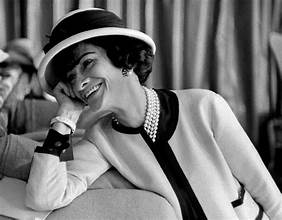I Love Lucy was a 50’s sitcom voted Best TV show of all time. Lucille Ball played a devoted wife, expert cook, and attentive mother. Outside her role as a housewife, she was portrayed as tone-deaf, naïve, and clumsy, unlike the real-life Lucille Ball who owned the production studio and was a groundbreaker in Hollywood. Today women play varied roles in sitcoms: teacher, vice president, head writer, detective, park director, doctor.
We’ve come a long way – in sitcoms and in life.
Mom and Dad in young families today balance their responsibilities, with Dad’s fuller participation in household chores and kids, and Mom’s contribution to finances. We are reaching equality. Both parties are more empathetic and appreciative of the other, which draws the family closer and bodes well for the next generation.
Feminine strengths outside the home benefit everyone. Women lead from collaboration, empathy, and multi-tasking, and through their firsthand experience with the day-to-day challenges of being a woman. Women connect dots, they see the big picture and tend to weigh factors like environment and inequality. Women-run companies tend to examine these issues and seek ways to address them.
Sandra Day O’Connor said, “As society sees what women can do, as women see what women can do, there will be more women out there doing things, and we’ll all be better off for it.” Andy Dunn said: “The next hundred years will be referred to as the female takeover. And by ‘takeover’ I don’t mean ‘Run for the hills, guys!’ I mean, ‘Your life will be improved by the ascendance of women.’”
Roughly 200 years “after” Andy Dunn’s quote, 2266 in Star Trek years and 1966 on earth, the USS Enterprise embarked on a mission “to explore strange new worlds, to seek out new life and new civilizations, to boldly go where no (hu)man has gone before.” Gene Roddenberry the creator of Star Trek wanted to show humans and aliens working together, solving problems brought about by war, authoritarianism, class warfare, economics, racism, religion, human rights, and technology. All while practicing altruistic values.
Roddenberry wanted Star Trek to reflect the 60’s counterculture and show how humans can learn from the past and end violence. He did not tout this, instead, he positioned Star Trek as a Space Western. The show was viewed as not marketable because the spaceship had a racially diverse crew, the first in US television history until Lucielle Ball backed it.
Star Trek the Original Series, the show with a positive view of the future that became a worldwide phenomenon, was backed by a brilliant businesswoman and ultra-talented actor who played a klutz—a role outside dutiful wife and mother that the public could accept in showbiz in the 50s.
I am grateful to Lucille Ball for being an inspiration and for backing Star Trek. Women today are lifted and borne aloft on the shoulders of women like her. She was the biggest, loveliest, and most luminous giant.




